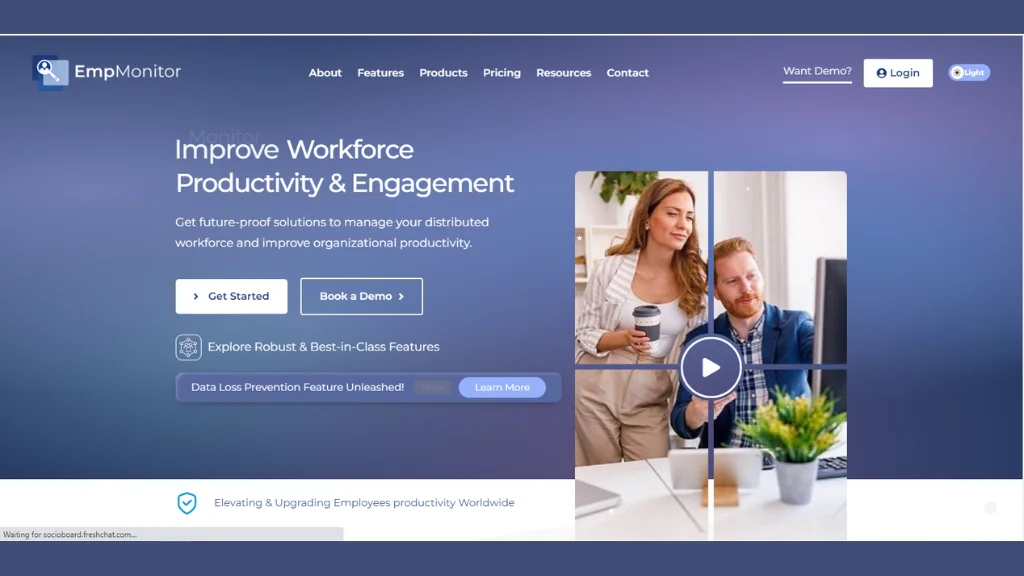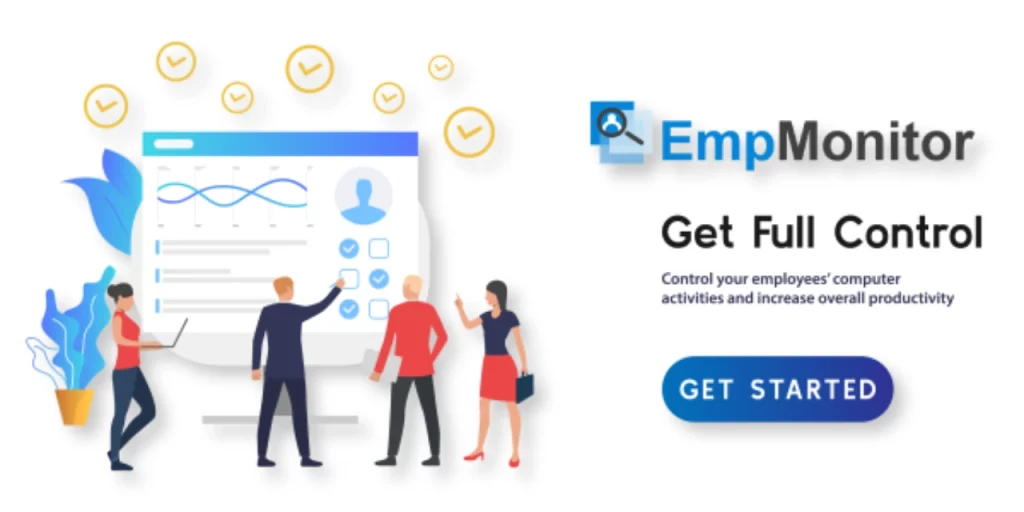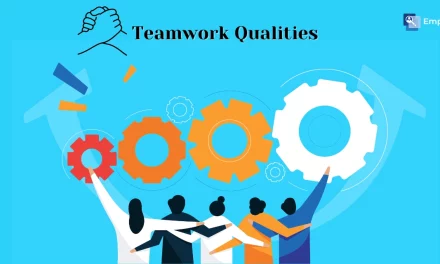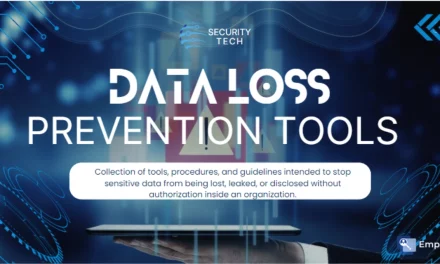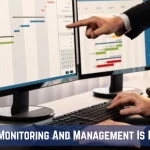With the advent of remote work, powered by remarkable technological progress and evolving perspectives on work-life harmony, more and more people are embracing the opportunity to work from the cozy confines of their homes. Yet, amidst the undeniable perks of flexibility, a new frontier of challenges emerges, demanding heightened levels of accountability in the remote work setup.
As organizations adapt to this hybrid work schedule, ensuring that employees remain accountable for their tasks and responsibilities becomes crucial.
In this blog, we’ll delve into the importance of work from home accountability, exploring its benefits, and providing eight practical tips to improve it.
In a hurry? Listen to the blog instead!
Advantages of Work From Home Accountability
As organizations increasingly embrace remote work structures, recognizing and harnessing the advantages of accountability for remote workers becomes pivotal. let’s delve into key advantages that highlight the positive impact of prioritizing accountability in the work-from-home landscape.
Increased Productivity
One of the key advantages of work-from-home accountability is the potential for increased productivity. When employees are aware of their responsibilities and are held accountable for meeting deadlines, they are more likely to stay focused and deliver results. This heightened sense of responsibility can lead to a more efficient and productive remote work environment.
Enhanced Communication
Work from home accountability fosters better communication among team members. By establishing clear expectations for working hours and task completion, individuals can create structured routines that promote a healthy work-life balance.
Employee Satisfaction and Retention
Employees appreciate an environment that values accountability. When individuals feel supported, trusted, and accountable for their work, their job satisfaction increases. This, in turn, contributes to higher employee retention rates, as individuals are more likely to stay committed to an organization that acknowledges and values their efforts.
Adaptability and Flexibility
Accountability in a work-from-home setup encourages adaptability and flexibility. Team members learn to be self-reliant, take ownership of their tasks, and adapt to changing circumstances. This adaptability is essential in today’s dynamic work environment and can contribute to an organization’s long-term success.
How to Improve Work From Home Accountability?
Fostering a more accountable remote work culture and implementing targeted strategies is essential. Here are tips to enhance work from home accountability and optimize productivity.
Establish Clear Expectations
It is imperative to meticulously outline and articulate expectations within the professional framework, encompassing aspects such as designated work hours, specific tasks, and stringent deadlines.
This deliberate and transparent communication serves as the cornerstone for cultivating a profound understanding among employees about the anticipated standards and responsibilities, consequently nurturing a culture of heightened accountability.
By furnishing a meticulously crafted structure, the workforce gains a comprehensive grasp of their roles and duties, promoting a cohesive and efficient work environment.
In essence, establishing clear expectations transcends mere communication; it is an intricately designed mechanism that empowers individuals to align their efforts seamlessly with organizational objectives, contributing to the establishment of a robust and thriving professional ecosystem.
Set Regular Check-Ins:
Establish a systematic framework for communication by incorporating routine check-ins into your operational cadence for work from home accountability.
These scheduled virtual meetings serve as dedicated forums to delve into the nuances of ongoing projects, fostering a collaborative environment where team members can voice concerns and share insights.
The deliberate organization of these sessions promotes transparency and ensures that any ambiguities are promptly addressed, contributing to a more streamlined workflow. By embracing regular check-ins, you cultivate a culture of open communication and create an avenue for real-time updates and the resolution of potential challenges.
This structured approach to engagement enhances team cohesion and provides a valuable mechanism for clarifying any uncertainties that may arise, ultimately fortifying the foundation of your project management strategy.
Utilize Project Management Tools –
Leveraging the capabilities of project management tools proves instrumental in optimizing operational workflows, fostering seamless collaboration, and ensuring heightened visibility into project dynamics.
EmpMonitor emerges as a robust solution for work from home accountability overseeing employee productivity, distinguishing itself through its powerful features. This workforce management software empowers organizations to effectively track workforce activities, especially beneficial for remote teams seeking focused and productive work hours.
Its comprehensive approach enhances managerial oversight, creating an efficient work environment and earning its reputation as the premier employee monitoring software.
Exploring EmpMonitor’s features reveals a multifaceted tool for project management:
Instantaneous Employee Oversight:
EmpMonitor offers comprehensive real-time insights into team engagement by monitoring applications, tracking website usage, and meticulously recording time allocation. This robust system not only ensures a focused approach to project-related responsibilities but also enables the tracking of idle, productive, and neutral time, providing a holistic understanding of team productivity dynamics.
Screenshots and Screen Recording:
Capturing snapshots and recording screens based on keywords or actions, EmpMonitor visually documents team members’ efforts, ensuring commitment to project objectives.
Time Tracking:
EmpMonitor enables employees to conveniently record their daily work hours, breaks, and tasks. Offering a holistic perspective on time utilization across various projects and activities, it empowers individuals to better organize and prioritize their workload, fostering efficient time management practices.
Productivity Analysis:
EmpMonitor includes a productivity analysis tool that assesses employee efficiency, pinpointing both productive and less productive hours to support data-driven decision-making.
Compliance and Security:
With a focus on data security and compliance, EmpMonitor safeguards sensitive employee data during work from home monitoring activities, adhering to legal regulations.
Remote Work Support:
Tailored for remote work scenarios and work from home accountability, EmpMonitor ensures sustained productivity outside the office, offering visibility into remote employees’ activities.
Detailed Reporting:
EmpMonitor produces comprehensive reports on employee activities, remote work time tracking, and productivity metrics, offering valuable insights into project progression and employee performance.
Encourage Goal Setting:
Promoting a culture of goal-setting among employees is instrumental in fostering individual and collective success within the organizational framework. Encouraging team members to delineate well-defined, attainable objectives catalyzes effective task prioritization, aligning efforts with strategic priorities.
Beyond the tangible benefits of enhanced productivity, goal setting contributes to a profound sense of fulfillment and accomplishment when milestones are successfully reached.
This process stimulates motivation and cultivates a heightened sense of work from home accountability among employees. By instilling a proactive approach to goal setting, organizations cultivate a dynamic and forward-thinking workforce, capable of navigating challenges with resilience.
In essence, the encouragement of goal setting establishes a framework for continuous improvement, empowering employees to proactively shape their professional trajectories within the broader context of organizational goals and objectives.
Provide the Right Tools and Resources:
Facilitating a conducive and well-resourced work environment is pivotal to the efficiency of remote employee optimization. It is imperative to guarantee that team members possess unfettered access to the requisite tools, cutting-edge software, and ample resources indispensable for the proficient execution of their tasks.
By prioritizing the provisioning of these essential elements, organizations empower their workforce and cultivate an environment conducive to heightened productivity and increased work from home accountability. A well-equipped remote workspace transcends being a mere operational necessity; it evolves into a cornerstone for fostering a culture of excellence.
It enables employees to navigate their responsibilities, contributing to a seamless workflow. In essence, providing the right tools and resources serves as an investment in the holistic development of a remote workforce, fortifying their capabilities to navigate the complexities of their roles with efficiency and effectiveness.
Promote a Dedicated Workspace:
Inspire team members to establish a meticulously curated and dedicated workspace within the confines of their homes. Cultivating such an environment serves the dual purpose of reducing potential distractions and fostering a professional ambiance that nurtures concentrated work efforts.
By urging employees to create an organized and personalized workspace, you contribute to heightened focus and instill a sense of commitment to their tasks. This commitment is vital in ensuring a seamless transition from the traditional office setting to a remote work arrangement.
Emphasizing the significance of a dedicated workspace underscores the value of creating a conducive atmosphere that enhances productivity, thereby reinforcing a commitment to quality work within the virtual realm.
Implement Time Tracking:
Leverage sophisticated work from home time tracker tools to meticulously monitor the allocation of working hours, discerning nuanced patterns of productivity.
This strategic implementation serves a dual purpose: fostering a heightened sense of work from home accountability among team members while concurrently offering profound insights into prospective avenues for enhancement.
By embracing these tools, organizations understand how time is allocated, paving the way for informed decision-making and refined operational strategies.
This meticulous analysis of working hours not only elevates the overall efficiency of the workforce but also establishes a foundation for continuous improvement.
In essence, the integration of time-tracking tools transcends mere accountability, evolving into a dynamic process that empowers organizations to optimize productivity and cultivate a culture of ongoing refinement.
Offer Training and Skill Development:
Promote the enrichment of your workforce by investing in comprehensive training programs designed to elevate the skills of your employees. Such initiatives not only foster professional development but also cultivate a profound sense of work from home accountability for personal growth.
By offering targeted training, you empower your workforce to navigate the ever-evolving landscape of their respective fields with confidence and competence.
These skill-enhancement endeavors fortify individual capabilities and foster a culture of continuous improvement within the organizational framework. As employees engage in purposeful learning experiences, they expand their proficiency and become valuable contributors to the team’s collective success.
This strategic investment in training nurtures a culture of excellence and positions your workforce at the forefront of innovation, enabling them to adapt and thrive in the dynamic challenges of the professional realm.
Foster a Culture of Trust:
Nurture a pervasive culture of trust within the remote team, transcending mere professional relationships to establish a foundation built on confidence and reliability.
Instill a profound belief in the team’s collective competence, empowering each member with the autonomy to oversee their time and tasks. This deliberate cultivation of trust goes beyond a mere transactional exchange; it engenders a sense of profound responsibility and work from home accountability among team members.
By fostering an environment where trust flourishes, you elevate the team’s productivity and nurture a workplace ethos that values and recognizes individual capabilities.
Encourage Breaks and Well-being:
Recognizing the crucial role breaks play in preserving mental well-being is paramount. It is imperative to actively promote and support employees in incorporating brief respites into their work routines.
These interludes serve as invaluable opportunities for individuals to rejuvenate their cognitive faculties, fostering a conducive environment for sustained concentration and heightened accountability.
By endorsing and fostering a culture that values and encourages these short breaks, organizations not only prioritize the mental health of their workforce but also cultivate an atmosphere that champions productivity and overall well-being.
Celebrate Achievements:
Recognize and celebrate individual and team achievements. Positive reinforcement boosts morale and motivates employees to remain committed to their tasks.
Establish a Communication Protocol:
Define a clear communication protocol to ensure that all team members are reachable during working hours. This helps reduce delays and foster a sense of work from home accountability.
Seek Feedback and Adapt:
Regularly seek feedback from employees on the effectiveness of remote work strategies. Use this feedback to adapt and refine your approach to improve work-from-home accountability continually.
Read More
Guide To Making Work From Home Easy For Everyone
7 Reasons Of Using Work From Home Time Tracker
Remote Work Time Tracking Tips And Tool
Conclusion
The benefits of work-from-home accountability extend beyond individual tasks to impact team dynamics, employee satisfaction, and overall organizational success.
By implementing the eight tips outlined in this blog—establishing clear expectations, utilizing technology wisely, scheduling regular check-ins, encouraging open communication, setting realistic goals, providing training and resources, fostering a culture of trust, and recognizing achievements—organizations can create a work-from-home environment that thrives on accountability and collaboration.
As the professional landscape continues to evolve, embracing the principles of accountability in remote work will be essential for individuals and organizations aiming for sustained success and growth.
By prioritizing clarity, communication, and recognition, remote teams can overcome challenges and thrive in the digital era. Work from home accountability is just a trend cornerstone for building resilient, adaptable, and high-performing teams in the modern workplace.



